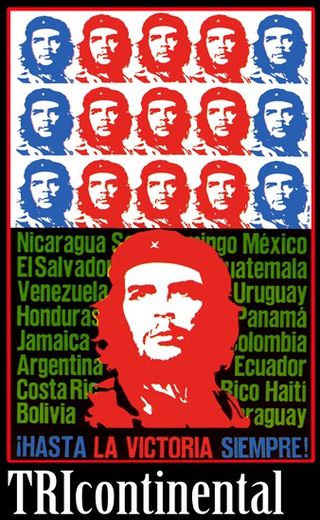
Dollar is the name of more than 20 currencies. The United States dollar, named after the international currency known as the Spanish dollar, was established in 1792 and is the first so named that still survives. Others include the Australian dollar, Brunei dollar, Canadian dollar, Eastern Caribbean dollar, Hong Kong dollar, Jamaican dollar, Liberian dollar, Namibian dollar, New Taiwan dollar, New Zealand dollar, Singapore dollar, Trinidad and Tobago Dollar and several others. The symbol for most of those currencies is the dollar sign $ in the same way as many countries using peso currencies.

Foreign Affairs is an American magazine of international relations and U.S. foreign policy published by the Council on Foreign Relations, a nonprofit, nonpartisan, membership organization and think tank specializing in U.S. foreign policy and international affairs. Founded on 15 September 1922, the print magazine is currently published every two months, while the website publishes articles daily and anthologies every other month.

Christianity Today is an evangelical Christian media magazine founded in 1956 by Billy Graham. It is published by Christianity Today International based in Carol Stream, Illinois. The Washington Post calls Christianity Today "evangelicalism's flagship magazine". The New York Times describes it as a "mainstream evangelical magazine". On August 4, 2022, Russell D. Moore—notable for denouncing and leaving the leadership of the Southern Baptist Convention—was named the incoming Christianity Today Editor-in-Chief.
L'Osservatore Romano is the daily newspaper of Vatican City State which reports on the activities of the Holy See and events taking place in the Catholic Church and the world. It is owned by the Holy See but is not an official publication, a role reserved for the Acta Apostolicae Sedis, which acts as a government gazette. The views expressed in the Osservatore are those of individual authors unless they appear under the specific titles "Nostre Informazioni" or "Santa Sede".

A newspaper of record is a major national newspaper with large circulation whose editorial and news-gathering functions are considered authoritative and independent; they are thus "newspapers of record by reputation" and include some of the oldest and most widely respected newspapers in the world. The level and trend in the number of "newspapers of record by reputation" is regarded as being related to the state of press freedom and political freedom in a country.

The Pachakutik Plurinational Unity Movement – New Country is a left wing indigenist party in Ecuador. It was founded primarily as a way to advance the interests of a wide variety of indigenous peoples' organizations throughout Ecuador.

North American Congress in Latin America (NACLA) is a non-profit organization founded in 1966 to provide information on trends in Latin America and relations between Latin America and the United States. The organization is best known for publishing the quarterly NACLA Report on the Americas, and also publishes "books, anthologies and pamphlets for classroom and activist use". The NACLA Report on the Americas print magazine was briefly discontinued in 2015, but relaunched under the Taylor and Francis imprint Routledge in May 2016.

The Society for Conservation Biology (SCB) is an 501(c)(3) non-profit international professional organization that is dedicated to conserving biodiversity. There are over 4,000 members worldwide, including students and those in related non-academic sectors.There are 35 chapters throughout the world.
Latin American studies (LAS) is an academic and research field associated with the study of Latin America. The interdisciplinary study is a subfield of area studies, and can be composed of numerous disciplines such as economics, sociology, history, international relations, political science, geography, gender studies, and literature.

Otaku USA is a bimonthly magazine published by Sovereign Media, which covers various elements of the "otaku" lifestyle from an American perspective. The issues were accompanied by a DVD featuring three anime episodes but as of 2009 the DVD feature was dropped and the double sided poster feature of the Magazine was also dropped starting with the February 2010 issue.

Friendly Bilateral relations now exist between Nicaragua and the United States. However, in the 19th and 20th centuries, tensions were high and American intervention was frequent. In the 1980s Due to Red Scare paranoia and an attempt to put down socialism in the region, the U.S proceeded to wage an undeclared war against the left-wing Sandinista movement by funding the Contra groups until it was defeated in the election in 1990.
Joseph Nevins is an American author, activist and Associate Professor of Geography at Vassar College in New York.
BlackPast.org is a web-based reference center that is dedicated primarily to the understanding of African-American history and Afro-Caribbean history and the history of people of Sub-Saharan African ancestry. In 2011 the American Library Association's Reference and User Services Association included it in its list of the 25 Best Free Reference Websites of the Year. According to BlackPast.org, the website has a global audience of about two million visitors per year from over 100 nations. In 2009, Canada, Australia, Great Britain, Brazil, and Germany ranked as the top five countries in visitors to the site after the United States. A 2008 website review described it as easily navigable and well organized but also as containing omissions among some features and as a work in progress. By 2009, the organization was selected by New York Public Library reference librarians as one of the top 25 hybrid print and electronic resources for the year.
The North-South Center, later named The Dante B. Fascell North-South Center at the University of Miami, was an independent research and educational institution established in 1984 at the University of Miami in Coral Gables, Florida, United States. The North-South Center was closed by the university in December 2003.
The Chile Solidarity Movement supported the election of Salvador Allende, president of Chile from 1970-1973. When a military coup ousted Allende from power in 1973, the Movement sought to end the dictatorship.
The Latin American and Caribbean Feminist Encuentros are a series conferences which began in 1981 to develop transnational networks within the region of Latin America and the Caribbean. The main focus of the conferences was to discuss and evaluate how women's marginalization and oppression could be eliminated given the existing economic and political systems by forming networks and strategies to create alternatives to existing norms. At times contentious, the various conferences explored what feminism meant—whether it was an inclusive movement or limited by social class, racial make-up, or sexuality; whether it was militant or passive; whether it was political, social, or economic; whether it was designed to work within patriarchal systems or needed to create new systems; and even whether accepting funding invalidated being feminist. Numerous initiatives recognizing diverse groups of women, such as Black and indigenous women, lesbian women, and various cultural and economic groups were spawned by the dialogues. The conferences are an ongoing attempt to negotiate strategies in an attempt to change region-wide policy agendas toward women.
Eli Altamirano Pérez (1934-2016) was a Nicaraguan politician and trade unionist. He served as the general secretary of the Communist Party of Nicaragua for a quarter century.
Urayoán Noel is a translator, poet, and critic who is the author of poetry collections, poetry criticism and books. He has received fellowships from the Ford Foundation, the Bronx Council on the Arts, the Howard Foundation, and CantoMundo.

The Tricontinental Conference was a gathering of countries that focused on anti-colonial and anti-imperial issues during the Cold War era, specifically those related to Africa, Asia, and Latin America. The conference was held from 3rd to 16 January 1966, in Havana, Cuba and was attended by roughly 500 delegates from 82 different countries. It founded the Organization of Solidarity with the People of Asia, Africa and Latin America (OSPAAAL). The key issues discussed at the conference were countries that were in midst of revolutions, with a specific focus on Cuba and Vietnam.
Anarchism in El Salvador reached its peak during the labour movement of the 1920s, in which anarcho-syndicalists played a leading role. The movement was subsequently suppressed by the military dictatorship before experiencing a resurgence in the 21st century.








